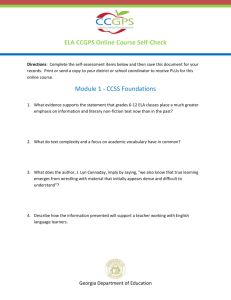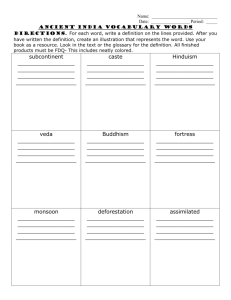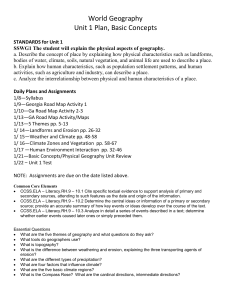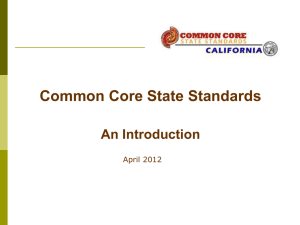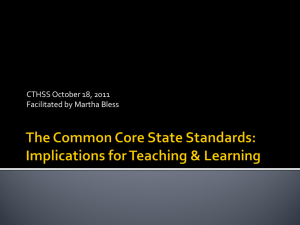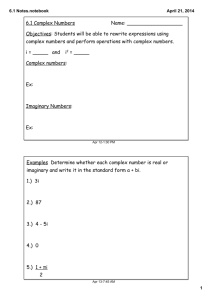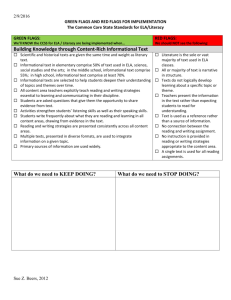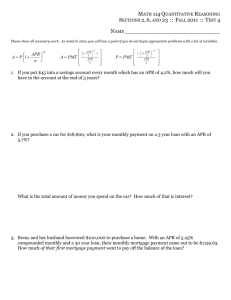STANDARDS for Unit 8
advertisement
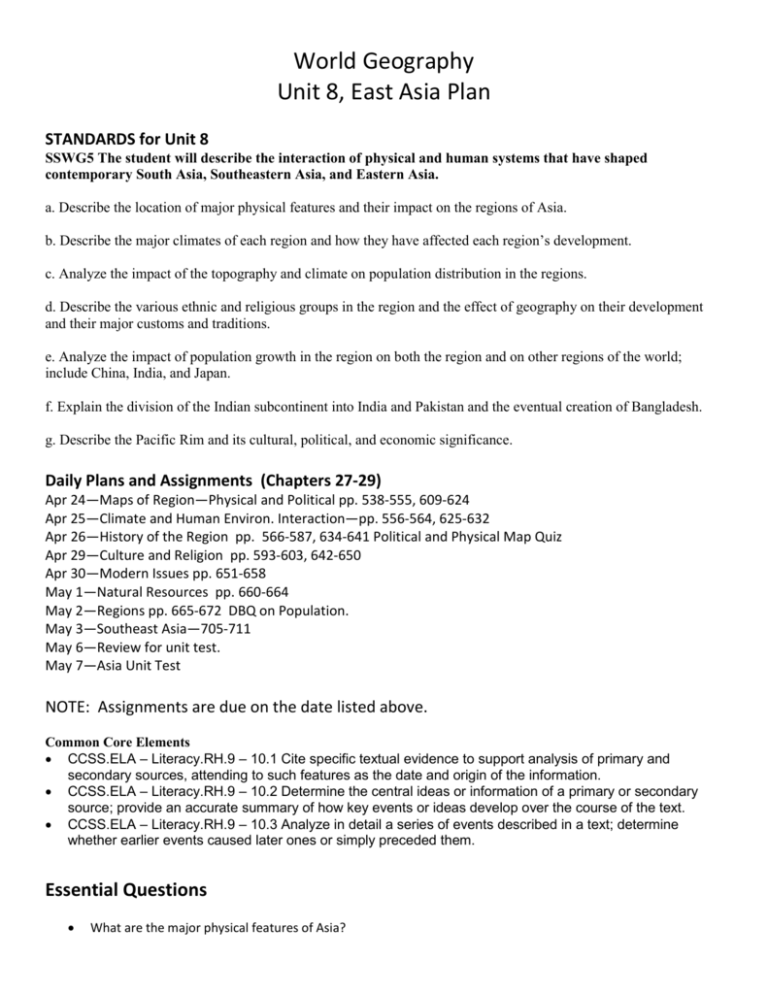
World Geography Unit 8, East Asia Plan STANDARDS for Unit 8 SSWG5 The student will describe the interaction of physical and human systems that have shaped contemporary South Asia, Southeastern Asia, and Eastern Asia. a. Describe the location of major physical features and their impact on the regions of Asia. b. Describe the major climates of each region and how they have affected each region’s development. c. Analyze the impact of the topography and climate on population distribution in the regions. d. Describe the various ethnic and religious groups in the region and the effect of geography on their development and their major customs and traditions. e. Analyze the impact of population growth in the region on both the region and on other regions of the world; include China, India, and Japan. f. Explain the division of the Indian subcontinent into India and Pakistan and the eventual creation of Bangladesh. g. Describe the Pacific Rim and its cultural, political, and economic significance. Daily Plans and Assignments (Chapters 27-29) Apr 24—Maps of Region—Physical and Political pp. 538-555, 609-624 Apr 25—Climate and Human Environ. Interaction—pp. 556-564, 625-632 Apr 26—History of the Region pp. 566-587, 634-641 Political and Physical Map Quiz Apr 29—Culture and Religion pp. 593-603, 642-650 Apr 30—Modern Issues pp. 651-658 May 1—Natural Resources pp. 660-664 May 2—Regions pp. 665-672 DBQ on Population. May 3—Southeast Asia—705-711 May 6—Review for unit test. May 7—Asia Unit Test NOTE: Assignments are due on the date listed above. Common Core Elements CCSS.ELA – Literacy.RH.9 – 10.1 Cite specific textual evidence to support analysis of primary and secondary sources, attending to such features as the date and origin of the information. CCSS.ELA – Literacy.RH.9 – 10.2 Determine the central ideas or information of a primary or secondary source; provide an accurate summary of how key events or ideas develop over the course of the text. CCSS.ELA – Literacy.RH.9 – 10.3 Analyze in detail a series of events described in a text; determine whether earlier events caused later ones or simply preceded them. Essential Questions What are the major physical features of Asia? How do physical features affect the regions of Asia? What are the major regions of Asia? What are the political and physical features of the regions of Asia? How is population growth addressed in this region? What are the major ethnic and religious groups found in this region? How does climate affect demography and population? What are the characteristics of the different religions in this region? How has history affected the development of the political characteristics of this region? How have Europeans affected the economic, political, and social characteristics of this region? Vocabulary Himalaya Mountains Monsoon Estuary atoll Microcredit Mandala Summer monsoon Xi Jiang River Three Gorges Dam Spheres of Influence Confucianism Seoul UNICEF Nonviolent resistance Cyclone Mughal Empire Caste system Entrepreneur Sinhalese Winter monsoon Typhoon Landfill Ring of Fire Siddhartha Guatama Hinduism Raj Partition Ramadan Tamils Kunlun Mountains Gobi Desert Dynasty Khmer Empire Indus Valley civilization Storm surge Subcontinent Archipelago Sherpa Sultan Huang He River Taklimakan Desert Boxer Rebellion Green Revolution Taoism Pyongyang Global economy Buddhism Samurai Recession Economic tiger Shogun Sweatshop Pacific Rim tsunami Indochina Ganges river Land reform Kashmir Alluvial plain illiteracy Chang Jiang River PCBs Mao Zedong

